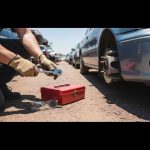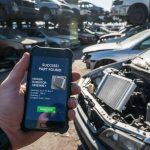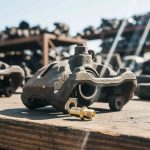Can a Flooded Engine Car Be Repaired?
- Yes, a car with a flooded engine can often be repaired.
- Immediate actions are crucial to prevent further damage.
- A professional assessment is recommended to evaluate the extent of the damage.
- Repair costs may be high; sometimes, replacement is more economical.
- Saltwater damage is more severe than freshwater.
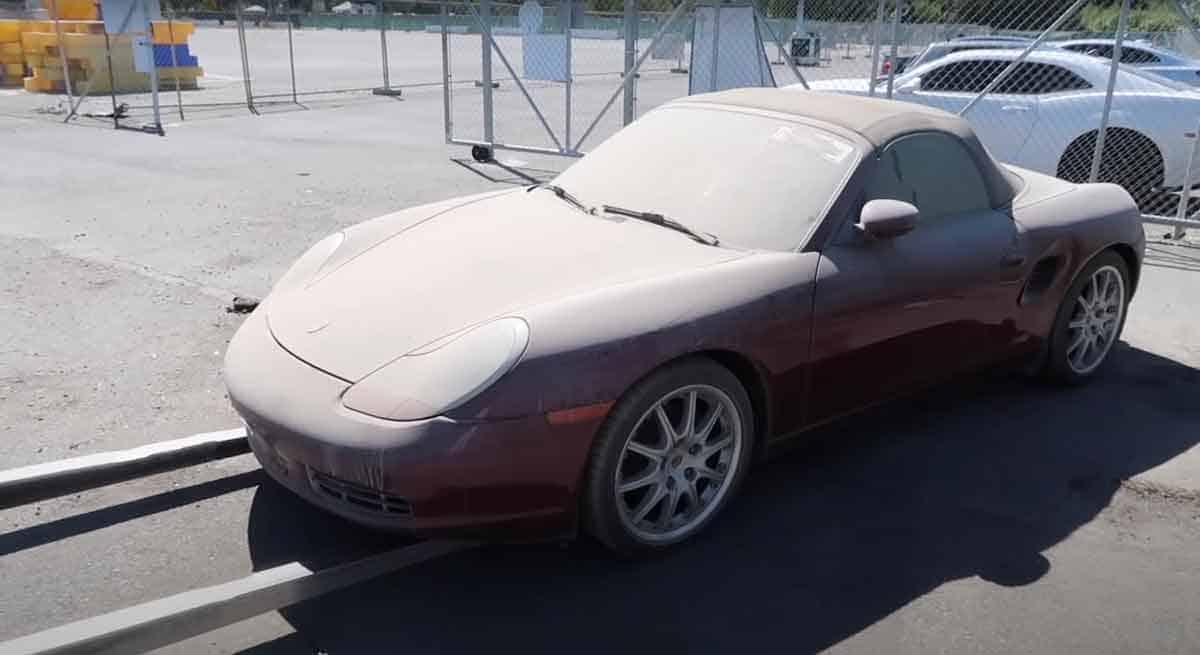
According to Carfax, the number of flooded cars back on the roads has been increasing:
- In 2023, there were approximately 452,000 flooded cars back on the roads.
- This number represents an increase of 53,000 vehicles compared to the previous year.
It’s important to note that these figures include all flood-damaged vehicles, not just those with flooded engines. The actual number of cars with flooded engines that return to the road is likely lower, as engine flooding often results in severe damage.Some additional points to consider:
- Many flood-damaged vehicles are declared total losses by insurance companies, especially if they were submerged in saltwater.
- The cost of repairing a flood-damaged car, particularly one with engine damage, often exceeds the vehicle’s value, leading to it being totaled.
- Some flood-damaged cars are repaired and resold in other parts of the country without the buyer being aware of the car’s history.
- The likelihood of a flooded vehicle being repaired and returning to the road depends on factors such as the extent of the damage, the type of water (fresh vs. salt), and the specific components affected.
While these statistics don’t provide a precise percentage of flooded engines that are repaired, they do indicate that a significant number of flood-damaged vehicles do make their way back onto the roads. However, it’s crucial to note that many of these vehicles may have undergone repairs of varying quality, and potential buyers should be cautious when considering a used car, especially in areas prone to flooding or in the aftermath of major storms.
| Year | Number of Flooded Cars |
|---|---|
| 2022 | 399,000 |
| 2023 | 452,000 |
Understanding Flooded Engine Damage
When a car’s engine is submerged in water, it’s called a flooded engine. Water can enter parts of the car where it shouldn’t be, causing problems. But don’t lose hope! With the right steps, a flooded engine can often be fixed.
Immediate Actions to Take
If your car gets flooded:
- Do Not Start the Car: Trying to start it can cause more damage.
- Disconnect the Battery: This prevents electrical issues.
- Remove Standing Water: Get rid of water inside the car as soon as possible.
For more tips on dealing with flooded cars, check out What to Do When Your Car Is Flooded in a Hurricane.
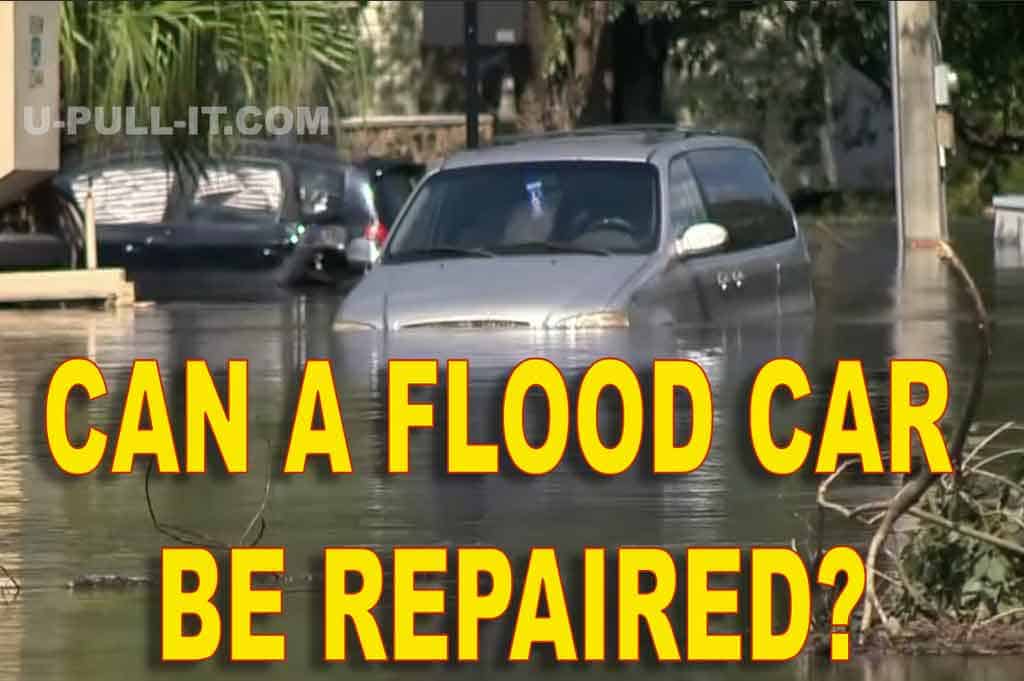
Assessing the Damage
Before fixing your car, you need to see how bad the damage is.
Finding the Water Level
- Look for a High-Water Mark: This shows how much of the car was underwater.
- Check the Interior: Wet seats and carpets can signal deeper problems.
Checking Fluids
- Engine Oil: If it looks milky, water has been mixed with the oil.
- Transmission Fluid: Water contamination here can cause big issues.
Repairing the Engine
The engine is like the heart of your car. Here’s how to fix it:
Remove Water from Cylinders
- Take Out Spark Plugs: This helps release trapped water.
- Crank the Engine: This pushes water out of the cylinders.
Change Oil and Filters
- Drain Engine Oil: Get rid of contaminated oil.
- Replace Oil Filter: A new filter keeps the oil clean.
Clean the Air Intake
- Inspect the Intake Tract: Remove any water and debris.
- Ensure It’s Dry: A wet intake can cause more problems.
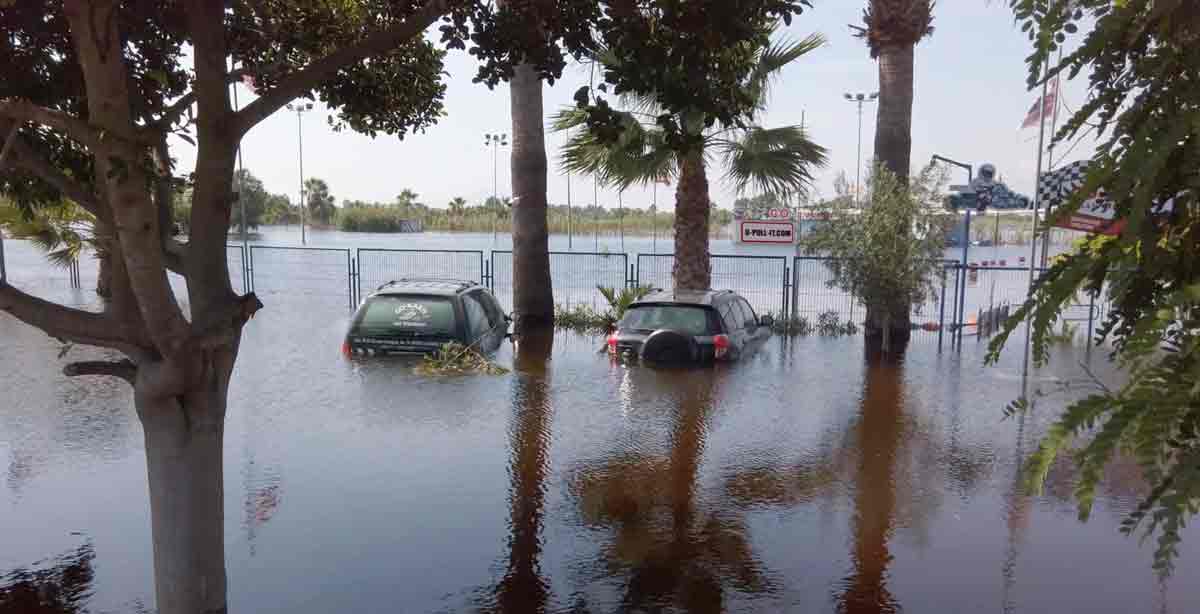
Repairing the Transmission
The transmission helps your car change gears.
- Drain Transmission Fluid: Remove any water.
- Replace the Filter: A clean filter ensures smooth operation.
- Check for Milky Fluid: This indicates water contamination.
Other Mechanical Components to Check
Water can affect many parts of your car.
Wheel Bearings
- Inspect for Water: Water can wash away grease.
- Repack or Replace: Keeps wheels turning smoothly.
Fuel System and Brakes
- Fuel System: Water in fuel can harm the engine.
- Brakes: Wet brakes may not work properly.
Learn about affordable parts at Auto Junkyards for Travelers: Your Ultimate US Adventure Guide.
Dealing with the Electrical System
Electric parts don’t like water.
- Fuse Box: May need replacing if submerged.
- Control Units and Modules: Important for car functions and might be damaged.
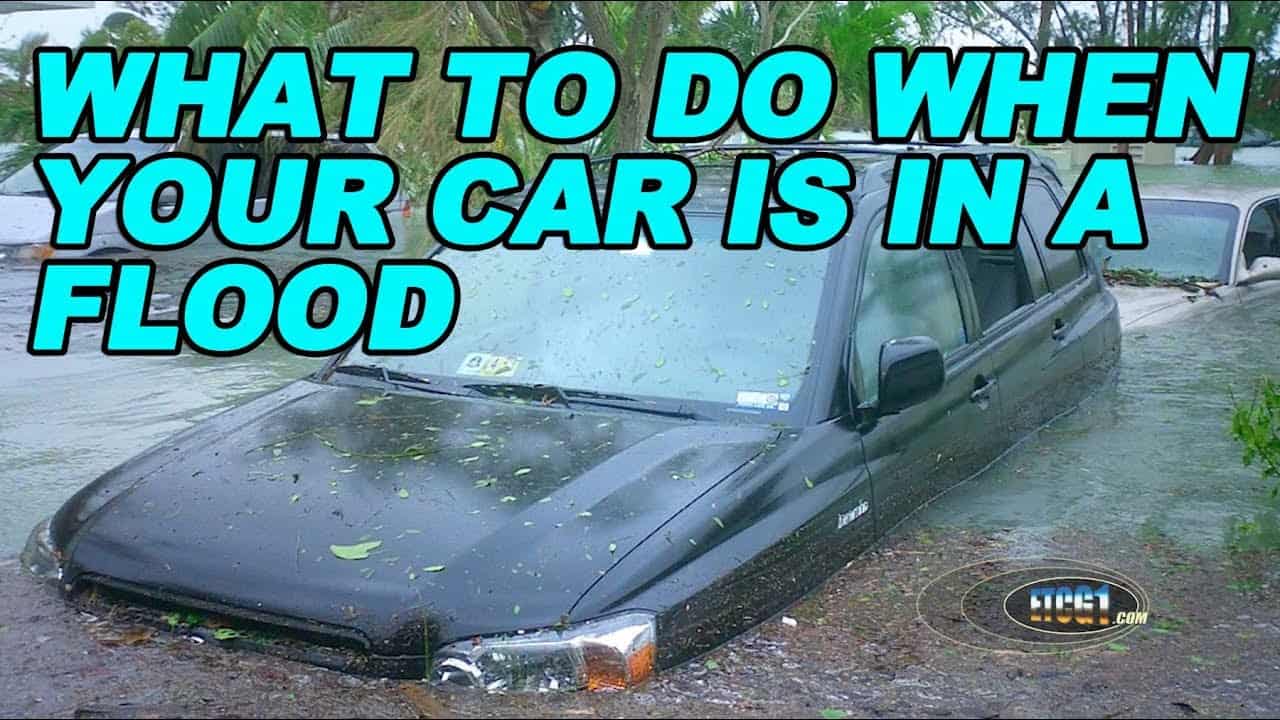
Professional Assessment is Important
An expert can find problems you might miss.
- Hidden Damage: Some issues aren’t obvious.
- Safety Checks: Ensures the car is safe to drive.
For advice on choosing a mechanic, visit 7 Questions to Ask Before Choosing an Auto Repair Shop.
Considering the Costs
Fixing a flooded car can be expensive.
- Repair vs. Replace: Sometimes, buying a new car is better.
- Insurance: Check if your policy covers flood damage.
Saltwater vs. Freshwater Damage
Not all water is the same.
- Saltwater Damage: Causes more rust and corrosion.
- Freshwater Damage: Easier to fix than saltwater damage.
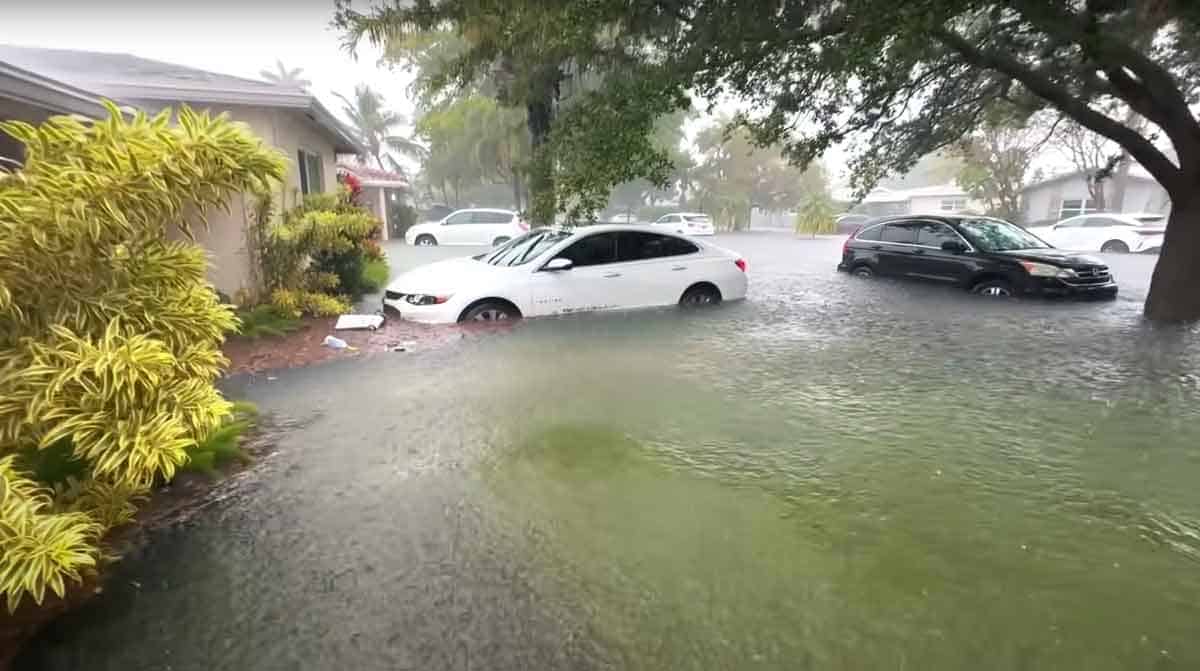
Potential Future Problems
Even after repairs, problems might arise.
- Electrical Issues: Wires and circuits may fail over time.
- Mechanical Wear: Parts might wear out faster due to water exposure.
Should You Repair or Not?
Deciding to fix the car depends on several factors.
- Cost of Repairs: Add up the expenses.
- Car’s Value: Is it worth investing in?
- Emotional Attachment: Sometimes, a car means more than money.
Tips from an Expert
Having worked on many flooded cars, I recommend:
- Act Quickly: The sooner you start repairs, the better.
- Keep Records: Document all repairs for future reference.
- Use Quality Parts: Don’t cut corners with cheap fixes.
For affordable parts, consider Buying a Used Car Battery: A Comprehensive Guide.
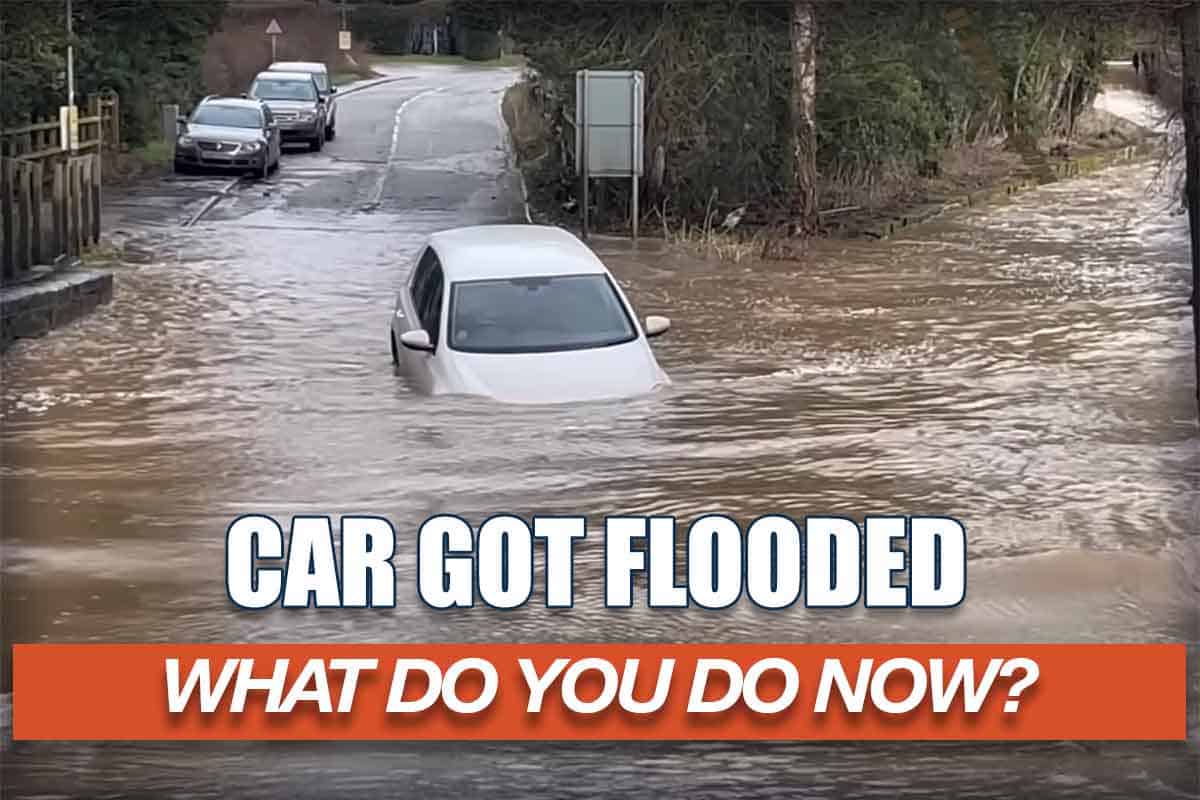
Preventing Future Flood Damage
- Avoid Driving Through Water: Even small puddles can be deeper than they look.
- Park on High Ground: Especially during heavy rains or storms.
- Stay Informed: Watch weather reports to avoid flooded areas.
Frequently Asked Questions
1. Can I start my car after it has been flooded?
No, starting the car can cause more damage. Water inside the engine can harm vital parts.
2. How can I tell if water has entered my engine?
Check the engine oil dipstick. If the oil looks milky or diluted, water may have entered.
3. Is saltwater damage worse than freshwater?
Yes, saltwater causes more corrosion and can damage electrical systems more severely.
4. Should I consult a professional mechanic?
Absolutely! A professional can identify hidden issues and ensure repairs are done correctly.
5. Will insurance cover flood damage to my car?
It depends on your policy. Comprehensive insurance often covers flood damage, but you should check with your provider.
Looking to sell your flooded car? Find out how at 24 Hour Junk Car Buyers Near Me: Sell Your Junk Car Today.
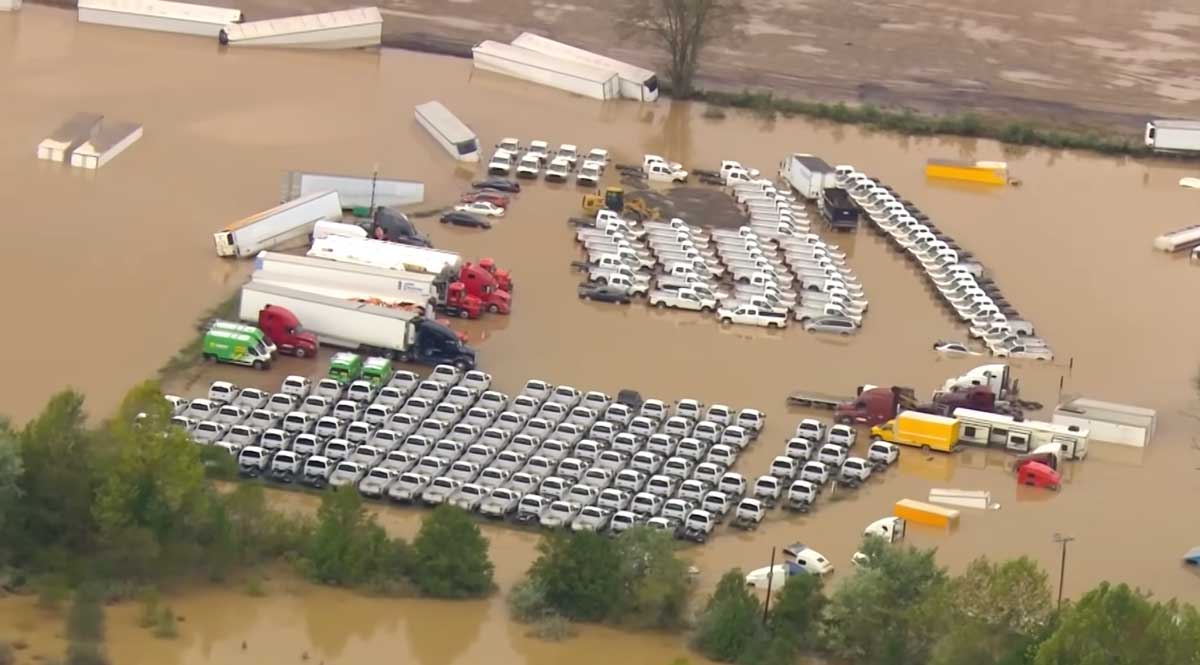
Remember, while a flooded engine car can be repaired, it’s important to act quickly and consult professionals to ensure your car is safe and roadworthy again.


